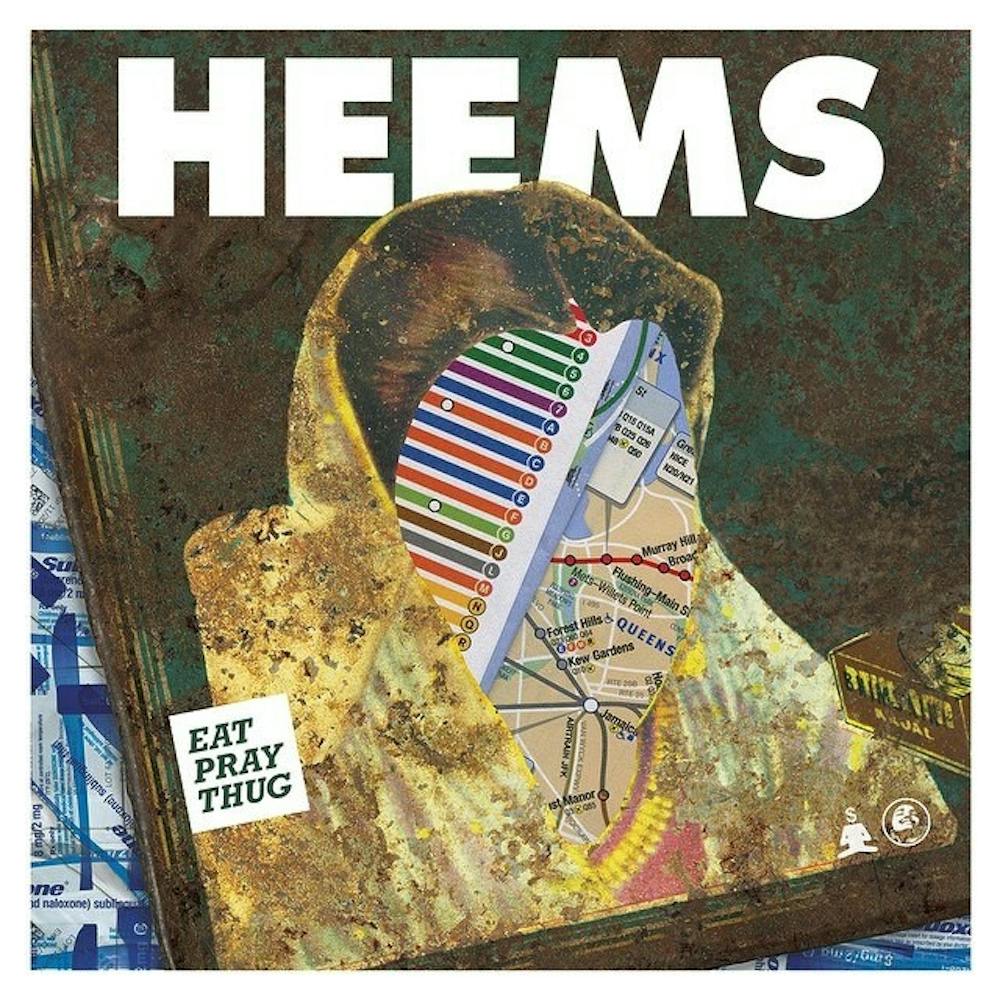Heems’ debut album, “Eat Pray Thug,” is a seething, biting rap record offering brilliant insight on social issues often overlooked by the genre. Though the record is great thanks to Heems’ intensity and harsh, direct sound, it occasionally falters in its communication and themes.
“Eat Pray Thug” faces unfavorable odds. Formerly of the now-defunct rap group Das Racist, Himanshu “Heems” Suri must prove himself as an artist worth more than the humor in his past hit, “Combination Pizza Hut and Taco Bell,” with subsequent offerings. All the while, he maintains a 9-to-5 job in advertising and faces newfound difficulties of being on a record label after self-releasing mixtapes.
Although, this album is not infallible due to likelihoods, it has extraordinary content.
Offering a harrowing account of being an Indian-American living in New York after 9/11, Heems depicts his life as unfailingly testing: from being in Manhattan during the terrorist attacks, experiencing infuriating dualism and confounding identities, and confronting the blurriness of his role as an artist.
In the blunt and chilling closer to the album, “Patriot Act,” Heems embodies his experience with compelling imagery of “bright American flags that read ‘I am not Osama,’” and multiple testimonies. Rapping, “but I guess it's okay because my dad wasn't deported / and I still get to correct his English at dinner / so he doesn't raise too much attention and get labeled a troublemaker,” Heems accentuates that the aftermath of the 9/11 attacks fostered racist American views that alienated fixed minorities.
“Flag Shopping” furthers this sentiment, but with grueling vice as evinced by the lyrics, “they’re staring at our turbans / they’re calling them rags / they’re calling them towels / they’re calling them diapers / they’re more like crowns / let’s strike them like vipers.”
While the lyricism of these tracks is moving, the delivery is also essential. Heems speaks — not quite raps — over minimalistic beats, delivering a clear sound to elicit an immediate reaction.
The opening track, “Sometimes,” illustrates the disparity in sound. Rapping about dualities, Heems’ lyrics are occasionally sharp and witty, but at other points, bland and monotonous. The repetitive lyrics issuing a “sometimes this, sometimes that” concept certainly emphasizes identity issues, but does so at an elementary level.
“Home (feat. Dev Hynes)” also does not deliver. Exhibiting the less dominant theme of failed relationships, the song is conveyed with an overwhelming lack of passion and power in Heems’ voice and writing even though it is the best of the tracks discussing this topic.
“Eat Pray Thug” largely provides exceptional social commentary for an underrepresented minority in rap music. Despite some of the record’s shortcomings, Heems proves with this album that he is an artist who is capable of more than dated jokes.





